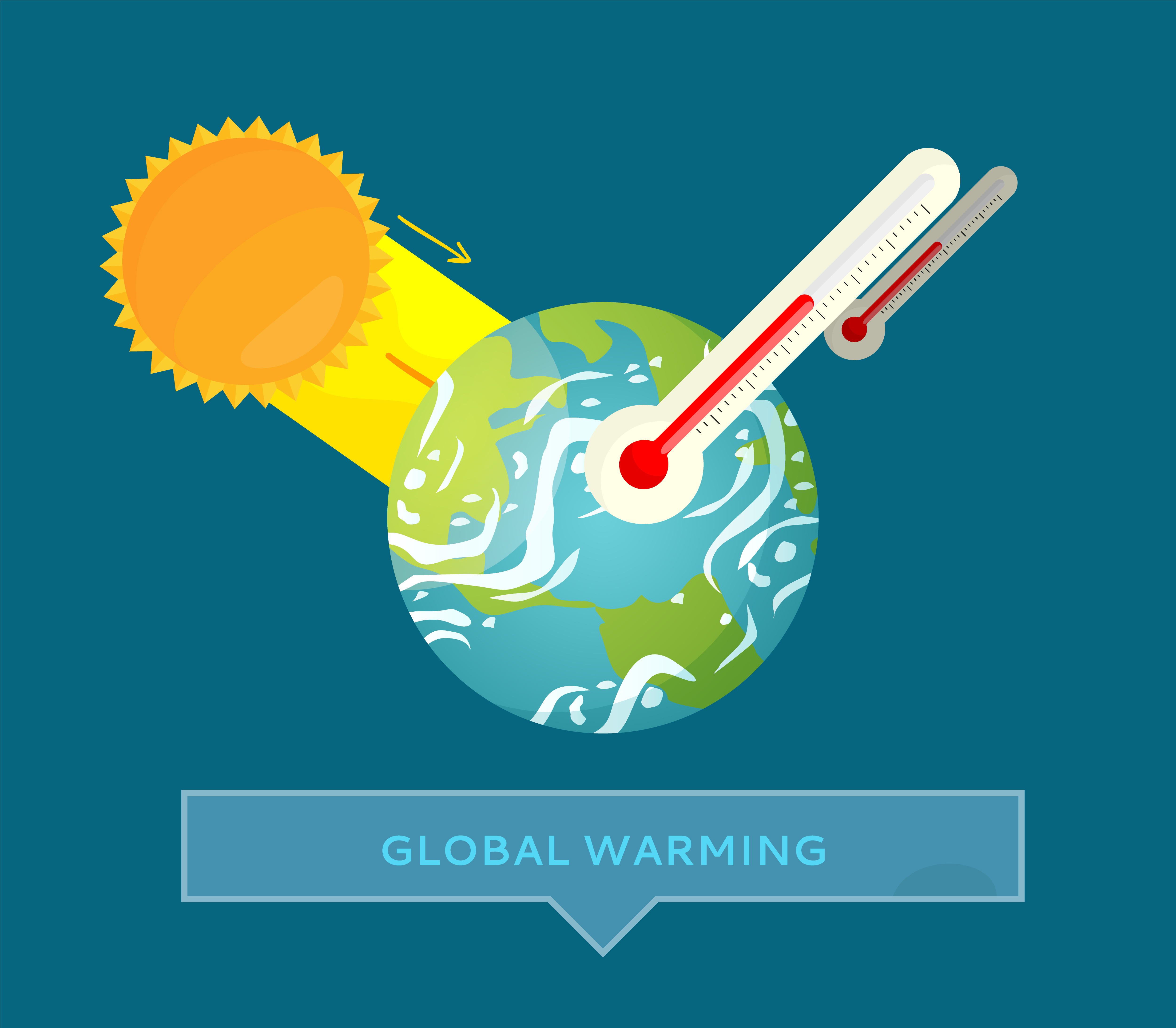Firstly, what is climate? Climate is the average pattern of weather, over many
years for a particular area such as the United Kingdom. Climate is not the same as weather, as weather is what you notice each day, such as wind, rain or sun.
The climate of the Earth is always changing. In the past the climate has
changed as a result of natural causes. For example, after a volcano has erupted, large quantities of dust are blown high into the atmosphere (the air around the Earth). That reduces the amount of sunshine reaching the Earth's surface.
What is Climate Change?
You may have heard the term climate change. Scientists believe since 1900 they have seen changes over this time that are mainly because of human activities and behaviour rather than natural changes.
The ‘greenhouse effect’ can cause climate change. A greenhouse (or glasshouse) is great for growing plants because it traps heat inside and stays hotter than the air around it. The Earth’s atmosphere behaves in a similar way, on a much bigger scale, trapping some of the warmth of the sun. This is the natural greenhouse effect; without it the earth would be too cold to support all different kinds of plant and animal life. The problem is that human activity is causing a greater warming of the Earth. This is because the gases released when we burn fuels are changing the atmosphere.
What causes climate change?
Scientists think that climate change is being caused mainly by “greenhouse gases” that we release when we burn fuels (for example, to heat our homes, generate electricity or power industry). Humans have been using energy in far greater quantities since the start of the last century (the year 1900), than they ever did before.
When fossil fuels like coal, gas, oil, or petrol are burnt they create a gas called carbon dioxide. Carbon dioxide makes the greenhouse effect stronger. As a result, more of the sun's heat gets trapped in the atmosphere and the planet warms up. This is what causes climate change. If it continues, it will have a big effect on climates and weather systems all over the world.
Global warming is often described as an anthropogenic process, which simply means "humans caused it". There are six important greenhouse gases, but carbon dioxide is the most important of them all, because we produce so much of it.
Another very important greenhouse gas is called methane. This is made inside cows and sheep, by the bacteria in their insides. It comes out when they burp!
Do we need to worry?
Scientists predict that climate change will affect much of our world. Many scientists and politicians believe that climate change is a threat greater than anything humans have faced in recent history. Unless we tackle the problem soon, it could cause serious problems, by making the climate much more unpredictable. This could make it much harder to grow enough food for everyone, especially in the developing countries where many people are already poor. Some types of animals and plants could become extinct.
Can we stop Climate Change?
Most climate experts think we need to act quickly to reduce the amount of greenhouse gases that humans are releasing into the atmosphere. We will probably be unable to stop the effects of climate change completely, but we might be able to limit them. To do this we all need to think about the energy that we use in our everyday lives and try to use less.
If everyone does something to reduce the amount of energy we use, we have a chance to limit the effects of climate change. Is there something that you or your family could do to help make a difference?
Further information on Climate Change Facts for Kids have been produced by Zero Smart.

